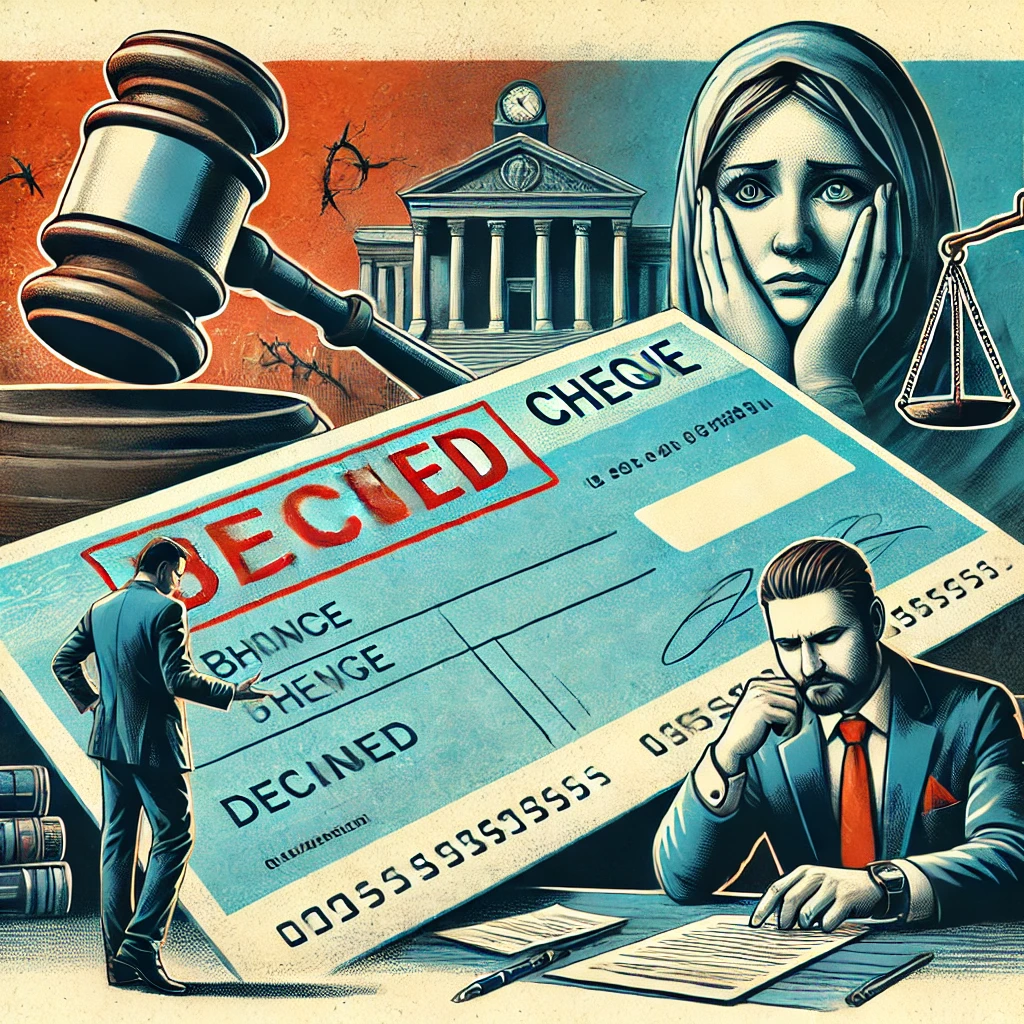Cheque Bounce Cases

In India, cheque bounce cases are primarily governed by Section 138 of the Negotiable Instruments Act, 1881. This section deals with dishonoring a cheque due to insufficient funds or if it exceeds the arranged limit.
1. Legal Provisions Under Section 138 of the NI Act
A cheque bounce is a criminal offense if the following conditions are met:
- The cheque was drawn for discharge of a debt or liability.
- The cheque was presented within 3 months from the date of issuance.
- The bank returns the cheque unpaid due to insufficient funds or other reasons.
- The payee issues a written demand notice to the drawer within 30 days of cheque dishonor.
- The drawer fails to pay within 15 days of receiving the notice.
If the drawer still does not make the payment, the payee can file a criminal complaint in court within 30 days.
2. Punishment for Cheque Bounce
- Imprisonment: Up to 2 years.
- Fine: Up to double the cheque amount.
- Both: Court may impose both imprisonment and fine.
3. Steps to Take in Case of Cheque Bounce For the Payee (Receiver of the Cheque)
- Obtain Dishonour Memo: Get a cheque return memo from the bank.
- Send Legal Notice: A demand notice must be sent within 30 days.
- Wait for 15 Days: If the drawer does not pay, legal action can be taken.
- File a Complaint in Court: Within 30 days after the 15-day notice period ends.
For the Drawer (Issuer of the Cheque)
- Settle the payment within 15 days of receiving the legal notice.
- If the case is filed, attend court hearings.
- Seek legal defense if the cheque was misused, stolen, or there was no legal liability.
4. Civil vs. Criminal Case
- Criminal Case: Filed under Section 138, leading to possible imprisonment and fines.
- Civil Case: The payee may also file a civil suit to recover the cheque amount.
5. Recent Legal Updates
The Supreme Court has ruled that courts must ensure speedy trials in cheque bounce cases. The government has also proposed decriminalizing Section 138 in some cases to reduce burden on courts.